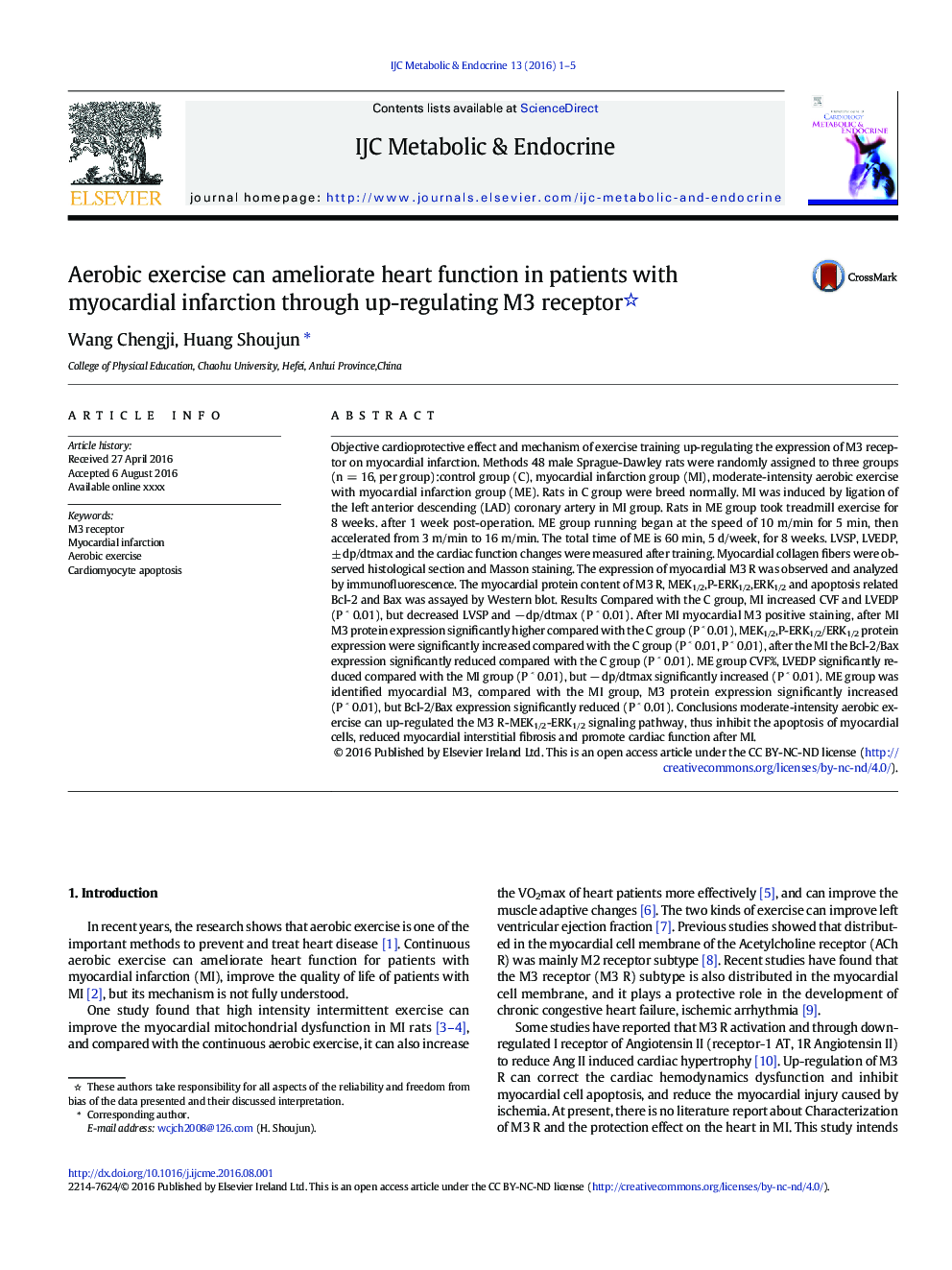| Article ID | Journal | Published Year | Pages | File Type |
|---|---|---|---|---|
| 2927159 | IJC Metabolic & Endocrine | 2016 | 5 Pages |
Objective cardioprotective effect and mechanism of exercise training up-regulating the expression of M3 receptor on myocardial infarction. Methods 48 male Sprague-Dawley rats were randomly assigned to three groups (n = 16, per group):control group (C), myocardial infarction group (MI), moderate-intensity aerobic exercise with myocardial infarction group (ME). Rats in C group were breed normally. MI was induced by ligation of the left anterior descending (LAD) coronary artery in MI group. Rats in ME group took treadmill exercise for 8 weeks. after 1 week post-operation. ME group running began at the speed of 10 m/min for 5 min, then accelerated from 3 m/min to 16 m/min. The total time of ME is 60 min, 5 d/week, for 8 weeks. LVSP, LVEDP, ± dp/dtmax and the cardiac function changes were measured after training. Myocardial collagen fibers were observed histological section and Masson staining. The expression of myocardial M3 R was observed and analyzed by immunofluorescence. The myocardial protein content of M3 R, MEK1/2,P-ERK1/2,ERK1/2 and apoptosis related Bcl-2 and Bax was assayed by Western blot. Results Compared with the C group, MI increased CVF and LVEDP (P ˂ 0.01), but decreased LVSP and − dp/dtmax (P ˂ 0.01). After MI myocardial M3 positive staining, after MI M3 protein expression significantly higher compared with the C group (P ˂ 0.01), MEK1/2,P-ERK1/2/ERK1/2 protein expression were significantly increased compared with the C group (P ˂ 0.01, P ˂ 0.01), after the MI the Bcl-2/Bax expression significantly reduced compared with the C group (P ˂ 0.01). ME group CVF%, LVEDP significantly reduced compared with the MI group (P ˂ 0.01), but − dp/dtmax significantly increased (P ˂ 0.01). ME group was identified myocardial M3, compared with the MI group, M3 protein expression significantly increased (P ˂ 0.01), but Bcl-2/Bax expression significantly reduced (P ˂ 0.01). Conclusions moderate-intensity aerobic exercise can up-regulated the M3 R-MEK1/2-ERK1/2 signaling pathway, thus inhibit the apoptosis of myocardial cells, reduced myocardial interstitial fibrosis and promote cardiac function after MI.
